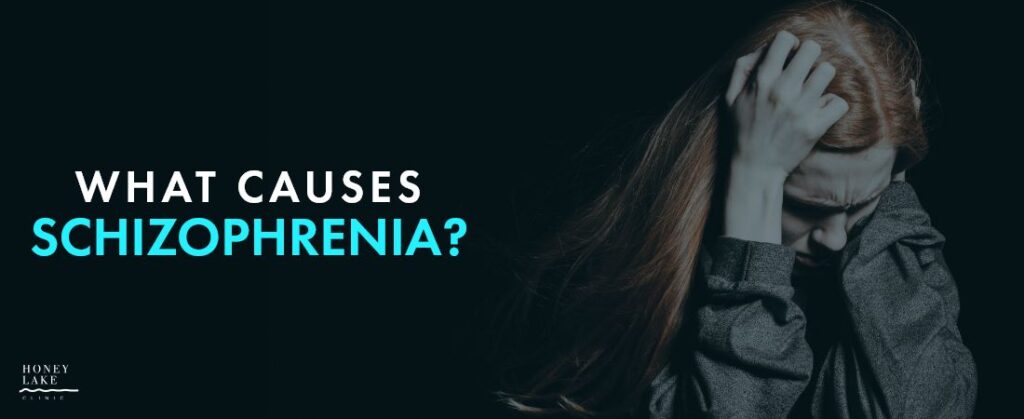What Causes Schizophrenia?
While psychosis can be triggered by a number of substances including alcohol, heroin, amphetamines, cocaine, prescription drugs and over-the-counter medications, schizophrenia is a chronic mental health condition recognized by its psychotic symptoms—hallucinations, disordered thoughts, disorganized speech, and departures or breaks from reality—which can become disabling.
Causes
Although a specific cause of schizophrenia is unknown, researchers believe that a combination of genetics, brain chemistry and environment contribute to development of the disorder.
Problems with certain naturally occurring brain chemicals, including neurotransmitters called dopamine and glutamate, may contribute to schizophrenia. Neuroimaging studies have identified differences in the brain structure and central nervous system of people with schizophrenia. While researchers aren’t certain about the significance of these changes, they indicate that schizophrenia is a brain disease.
Risk Factors
Certain factors seem to increase one’s risk of developing schizophrenia, including:
- A family history of schizophrenia
- Certain pregnancy and birth complications which impact brain development
- Exposure to psychoactive or psychotropic drugs during the teen years and young adulthood
Complications
Untreated, schizophrenia can result in severe complications, including:
- Anxiety disorders and obsessive-compulsive disorder (OCD)
- Depression
- Alcohol or drug use
- Social isolation
- Difficulty with work and/or school
- Financial problems and/or homelessness
- Health and medical problems
- Suicidal thoughts and/or attempts
Prevention
While there is no way to prevent schizophrenia, recognizing its symptoms, seeking a diagnosis and receiving treatment can help prevent the worsening of symptoms and allow patients to develop the skills necessary to better navigate daily life.
Symptoms
Schizophrenia encompasses a wide range of thought, behavior and emotional difficulties. Signs and symptoms may vary, but usually they involve delusions, hallucinations or disorganized speech, and reflect an impaired ability to function. Symptoms may include:
- Delusions or beliefs that are not based in reality. This might present as believing someone is out to hurt you, or that certain gestures or comments were directed at you, or that someone is following you, or that a catastrophe is about to occur.
- Hallucinations or seeing and/or hearing things that don’t exist. While hearing voices is the most common example of hallucinating, any of the senses can become involved.
- Disorganized thinking and speech. Communication becomes impaired, and answers to questions may become a confused or unintelligible mixture of seemingly random words and phrases—sometimes this is referred to as a word salad.
- Disorganized behaviors may include aggression, agitation, acting childlike, or anything else unusual.
- Associated negative symptoms or take-aways, such as a lack of emotion, monotone speech, blank facial expressions, a loss of interest in everyday activities, social withdrawal, or a neglect of personal hygiene.
Symptoms in Teenagers
Schizophrenia symptoms in teenagers are similar to those in adults, but the condition may be more difficult to recognize because many of the early signs of schizophrenia are typical of development during the teen years. Symptoms such as:
- Withdrawal from friends and family
- Declining performance at school
- Trouble sleeping
- Irritability or depressed mood
- Lack of motivation
Treatment
If you suspect you or someone you love is suffering from schizophrenia, seek a diagnosis and treatment. The good news is that while these disorders are serious and can interfere substantially with daily life, the symptoms of schizophrenia can be managed through treatment.
People with schizophrenia can live healthy and full lives.
The Honey Lake Difference
Honey Lake Clinic is a fully licensed, residential Schizophrenia and Schizoaffective Disorder Treatment Center. Through gentleness, kindness and mirroring the image of Jesus, patients at Honey Lake Clinic experience love, validation, and acceptance in a community/socialized setting. Patients discover a sense of their own individuality within a community concept, learn to deal with their symptoms, gain knowledge and understanding of their illness, and develop the skills necessary to better navigate daily life.
